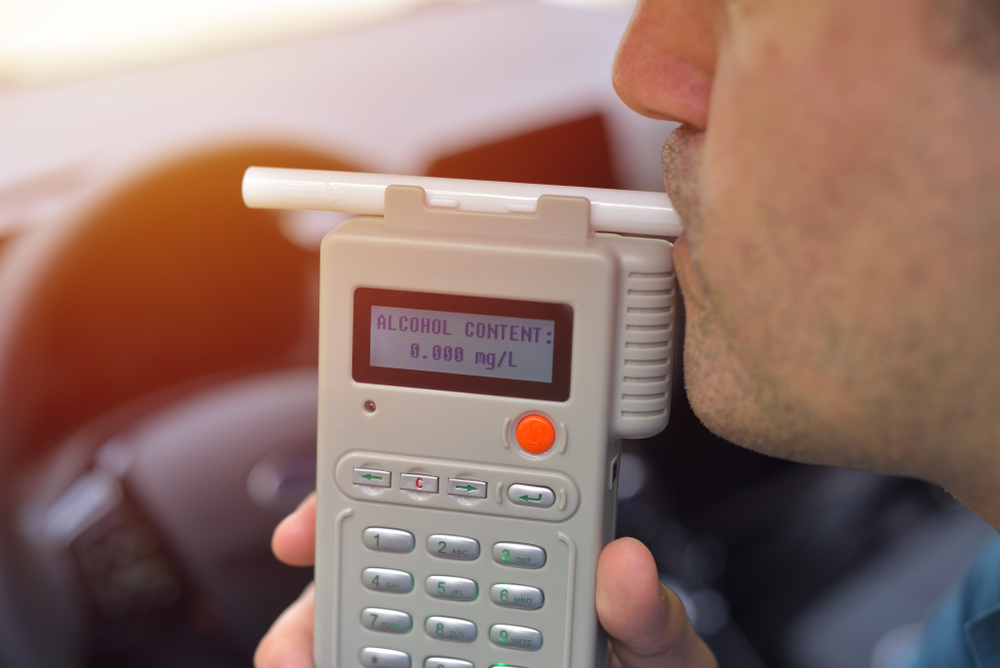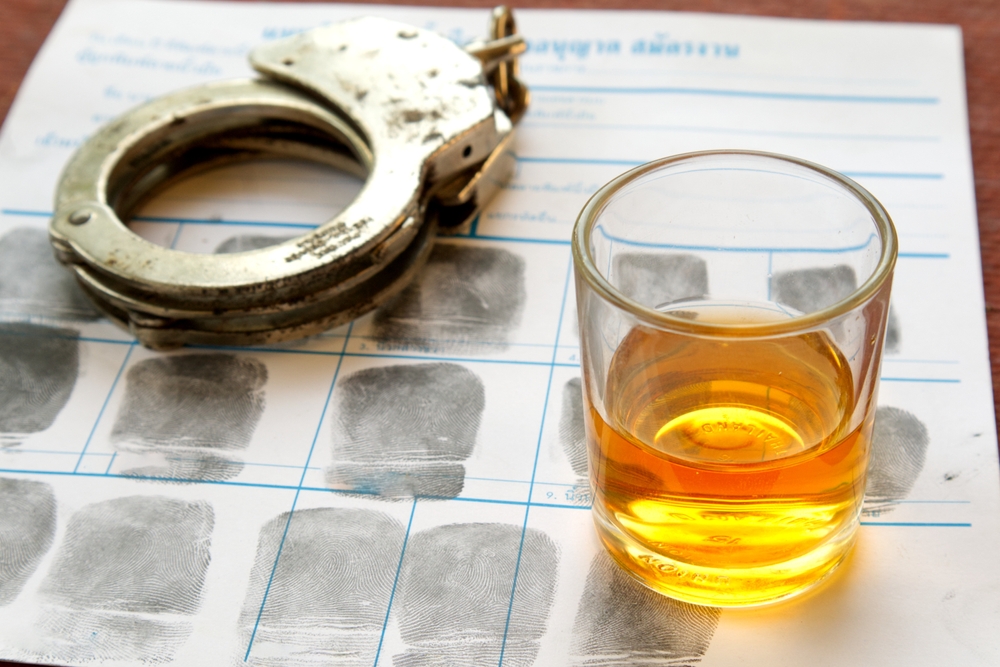In Indiana, driving under the influence (DUI) or operating while intoxicated (OWI) is a serious offense with potentially grave consequences. A DUI arrest in Indiana can lead to immediate legal consequences, including vehicle towing and driver’s license suspension as part of the administrative penalties.
The suspension of a driver’s license can result in the loss of driving privileges, and reinstatement often requires meeting specific administrative requirements, such as attending a hearing, paying fines, and completing a substance abuse program. DUI laws in Indiana define impairment as driving with a Blood Alcohol Concentration (BAC) of 0.08 grams per deciliter (g/dL) or higher, a standard that aligns with the legal limit across the United States. The risk of a crash increases exponentially at this BAC level.
Snapshot Authorities will consider you intoxicated when you meet any of the following criteria:
- You have a BAC of .08 or higher
- Any amount of a Schedule I or II drug or its metabolite is in your system
- You are actually intoxicated by alcohol or any drug
Facing DUI charges? Call 317.671.8965 for a free consultation.
However, even a lower level of alcohol in the system can impair driving ability, with alcohol being absorbed through the stomach and small intestine before entering the bloodstream. This is why it’s crucial to understand that any amount of alcohol can affect one’s driving skills and judgment, and greatly increase the risk of a wreck, serious bodily injury,
The Consequences of DUI/OWI in Indiana Are Severe
In Indiana, DUI charges can range from Class C misdemeanors (Ind. Code § 9-30-5-1) to Level 4 felony offenses, depending on the circumstances such as blood alcohol concentration (BAC) levels, prior DUI convictions, and aggravating factors like causing bodily injury or death.
The criminal penalties for a DUI conviction may include driver’s license suspension, significant fines, and possible jail time. The suspension of a driver’s license can vary in length, typically ranging from 90 days to 2 years, depending on the severity of the offense and prior convictions.
Reinstatement procedures often require meeting specific conditions, such as completing a substance abuse program or installing an ignition interlock device. In some cases, the driver may need to attend a hearing with the Bureau of Motor Vehicles to demonstrate compliance with all requirements. In the criminal justice system, law enforcement officers take DUI offenses seriously, and the legal consequences can be severe.
Financially, a first DUI offense in Indianapolis can cost a driver up to $5,000 in fines. Moreover, driving under the influence poses a grave danger to the driver, passengers, and other motorists on the road. This risk is highlighted by the sobering statistic that approximately 28 people in the U.S. die daily due to drunk-driving crashes.
For more detailed information on Indiana’s DUI/OWI laws and how an experienced DUI attorney or law firm can provide legal representation, visit the Indiana Criminal Justice Institute’s Drunk Driving page. If facing DUI charges, it’s advisable to seek a free consultation with skilled Indianapolis DUI lawyers or OWI defense attorneys to discuss the specifics of your case and explore options for a strong defense.
What Constitutes a DUI/OWI in Indiana?
Legal Blood Alcohol Concentration (BAC) Limits
In Indiana, DUI and OWI laws emphasize the significance of the legal BAC limit, which is set at 0.08 g/dL for adult drivers by Ind. Code § 9-30-5-1.
This threshold is a critical component of Indiana law, especially in DUI cases and OWI charges. Operating a motor vehicle at or above this BAC level can lead to serious charges under Indiana DUI law, potentially resulting in a DUI conviction.
It’s important to note that even lower BAC levels can impair driving abilities, as they significantly affect judgment and motor skills crucial for safe driving. Drivers should be aware that law enforcement officers are vigilant in enforcing these standards. A breathalyzer test is commonly used during traffic stops to determine a driver’s blood alcohol concentration.
Understanding and adhering to these BAC limits is key in complying with Indiana OWI laws and avoiding legal repercussions such as DUI charges, license suspension, and jail time. In cases of DUI offenses or accusations, consulting with experienced DUI attorneys or DUI defense lawyers can provide necessary legal representation and guidance through the complexities of the criminal justice system.
This legal experience is particularly vital for those seeking a favorable outcome in their DUI case or facing a possible DUI conviction in Indianapolis or elsewhere in Indiana.
Zero Tolerance Blood Alcohol Concentration (BAC)
The legal drinking age in Indiana is 21. Indiana has a zero-tolerance law for drivers under 21 (Ind. Code § 9-30-5-8.5). If you are under 21, the BAC for OWI is .02. This is much lower than the general .08 requirement.
Implied Consent Law
Drivers in Indiana are considered to have consented to BAC tests under Indiana’s implied consent law IC 9-30-6. You must perform the blood or breath tests.
If you refuse, you will be penalized. With no prior record, the penalty is a 1-year driver’s license suspension. If you have a prior OWI, the penalty is a 2-year driver’s license suspension. Additionally, the administrative procedures for reinstating your driver’s license after suspension include attending a hearing, paying reinstatement fees, and possibly completing a substance abuse program. Failure to comply with these requirements can result in further delays or denial of your driving privileges.
Other Forms of Impairment
Indiana DUI/OWI laws are comprehensive, addressing impairment from various substances, including alcohol, illicit drugs, controlled substances, and even certain prescription medications. Driving with even small amounts of a Schedule I or II controlled substance in the system can lead to OWI charges in Indiana. This broad scope underscores the state’s commitment to ensuring road safety by penalizing any form of impaired driving.
These laws recognize that the influence of any substance that affects safe driving abilities can lead to DUI/OWI charges. This is not limited just to alcohol-related offenses but extends to any form of impairment that might endanger the safety of the driver, passengers, and others on the road.
The focus of Indiana DUI/OWI laws is on the overall impairment effect on the driver, rather than solely on specific substance levels like blood alcohol concentration (BAC). This approach underscores the risk such substances pose to road safety, reinforcing the importance of sober and attentive driving.
Whether it’s through a field sobriety test, chemical test, or other law enforcement measures, Indiana’s legal framework aims to deter and penalize impaired driving in all its forms.
Consequently, individuals facing DUI/OWI charges in Indiana, especially in jurisdictions like Indianapolis, should seek the expertise of DUI defense lawyers or OWI defense attorneys for proper legal representation and advice.
Indiana Code § 9-30-5-1 states that you can be charged with a Class C Misdemeanor if you operate a vehicle under the influence of any Schedule I (IC 35-48-2-4) or Schedule II (Ind. Code § 35-48-2-6) or the metabolites of these drugs.
Some examples of controlled substances that can lead to a DUI include:
- Cocaine: A Schedule II substance, its presence in a driver’s system can lead to a DUI conviction in Indiana.
- Opiates: Listed under Schedule I and II, the use of opiates is a critical factor in DUI offenses and can result in legal consequences like jail time and license suspension.
- Marijuana: In OWI defense cases in Indiana, your lawyer may argue you were not intoxicated and did not cause an accident (Ind. Code § 9-30-5-1-d).
- Methamphetamine: A potent Schedule II drug, leading to severe DUI charges and legal representation requirements.
- Hallucinogenics: These Schedule I substances are critical in determining DUI convictions and DUI cases in the criminal justice system.
In conclusion, Indiana’s DUI/OWI laws, including those related to driving under the influence of these substances, are designed to ensure road safety by setting clear limits and regulations.
Understanding these laws, including the implications for blood alcohol concentration, DUI charges, and potential DUI convictions, can help drivers make informed decisions and avoid the severe consequences that come with DUI/OWI offenses.
This includes understanding the legal limit for driving, the role of DUI attorneys in such cases, and the impact of a DUI offense on one’s life and future, such as jail sentences, license suspension, and the need for a strong defense in the face of stark DUI lawyers.
Penalties Under Indiana DUI Laws
OWI Conviction – First-Time Offenders
In Indiana, the legal consequences for first-time DUI/OWI offenders are severe, emphasizing the state’s strict stance against impaired driving. These consequences include the suspension of a driver’s license, up to $5,000 in fines, and the potential for up to a year of jail time. The reinstatement procedures for a driver’s license can be complex and often require meeting specific conditions set by the court.
Probable cause identified by law enforcement officers for a DUI/OWI offense can lead to immediate legal actions, including the suspension of a driver’s license. This is a preliminary step that can ultimately contribute to a formal OWI conviction if the evidence and circumstances support such an outcome.
Following a first-time offense, the administrative procedures for reinstating a driver’s license typically involve attending a court hearing, completing a substance abuse evaluation, and possibly enrolling in a driver safety program. Additionally, offenders may be required to pay reinstatement fees and provide proof of insurance.
Additionally, Indiana law stipulates specific repercussions for failing or refusing a chemical test, such as a breathalyzer or blood test. Failing such a test may lead to a suspension of a driver’s license for up to 180 days. More critically, refusing to undergo a chemical test when suspected of a DUI/OWI can result in a longer suspension period, extending up to two years.
This aspect of Indiana DUI/OWI law highlights the importance of understanding the implications of these tests and the legal limits they enforce. For individuals facing such situations, it’s advisable to seek guidance from experienced DUI lawyers or OWI defense attorneys who can provide expert legal representation and navigate the complexities of the DUI legal process.
OWI conviction – Repeat Offenders
Indiana’s Habitual Traffic Violator (HTV) law imposes stringent penalties on repeat OWI offenders, particularly those with prior convictions. This law is designed to significantly deter repeat offenses and enhance road safety.
Under this law, individuals who accumulate three convictions of significant traffic offenses, such as driving with a Blood Alcohol Concentration (BAC) over the legal limit, within a ten-year period face harsh consequences, especially if they have a prior DUI conviction.
One of the most severe penalties is a decade-long suspension of a driver’s license, with specific procedures for reinstatement after the suspension period ends. These procedures often include completing a substance abuse program, paying reinstatement fees, and providing proof of financial responsibility, such as SR-22 insurance.
This extended suspension period serves as a strong deterrent, emphasizing the importance for those with any prior conviction to diligently avoid drinking and driving.
In more severe cases, especially those resulting in injury or death, the HTV law allows for even more drastic measures. A lifetime suspension of a driver’s license is a potential outcome in such instances, reflecting the serious nature of these offenses and their impact on public safety.
The HTV law illustrates the escalating nature of penalties in Indiana’s approach to DUI/OWI enforcement. It underscores the critical need for individuals, particularly those with a history of traffic violations, to strictly adhere to driving laws. For those facing charges under the HTV law, it is imperative to seek legal counsel from experienced DUI or OWI defense attorneys.
These legal professionals can provide essential guidance and representation in navigating the complexities of Indiana’s traffic and DUI laws.
Aggravating Factors that Increase Penalties and License Suspension
Aggravating factors in Indiana DUI/OWI offenses can significantly affect the severity of the charges and penalties. A blood alcohol concentration (BAC) of 0.15 or above is considered an aggravating factor, elevating a first offense from a Class C misdemeanor to a Class A misdemeanor.
Additionally, causing injury or death while driving under the influence dramatically escalates the gravity of the offense. Ind. Code § 9-30-5-4 classifies a DUI offense causing serious bodily injury as a Level 5 or Level 4 felony depending on whether a person has prior convictions within the last 5 years. A DUI offense leading to the catastrophic injury or death of another person is a Level 4 felony under Ind. Code § 9-30-5-5.
Another critical aggravating factor is the presence of minors in the vehicle at the time of the DUI/OWI offense. Under Ind. Code § 9-30-5-3, passengers under 18 can intensify the penalties substantially, potentially escalating the charges to a felony level. Such a scenario can result in an extended driver’s license suspension, increased fines, and longer jail sentence terms.
Reinstatement procedures for a suspended driver’s license often involve meeting specific legal requirements, including the potential installation of an ignition interlock device. Additionally, offenders may need to attend alcohol education programs, pay reinstatement fees, and provide proof of financial responsibility (SR-22 insurance) to regain their driving privileges.
These enhanced penalties under Indiana DUI law reflect the increased risk posed to public safety, especially to minors.
Given the complexity and severity of these factors, it’s crucial for drivers in Indiana to understand the impact of these aggravating circumstances in DUI/OWI cases. In such situations, seeking appropriate legal representation is vital. Experienced DUI attorneys or OWI criminal defense lawyers can offer necessary guidance and robust defense strategies.
They can navigate the complexities of the law, including understanding how factors like a high BAC level, the presence of minors, or causing injury or death can influence the outcome of an OWI conviction. This legal assistance is particularly important in Indiana, where DUI laws are stringently enforced and the consequences for aggravated DUI/OWI offenses are severe.
Defending Against a DUI/OWI Charge
Plea Bargaining OWI
In Indiana, navigating the complexities of OWI (Operating While Intoxicated) charges often proves challenging, particularly when it comes to plea bargaining, DUI defense, and the nuances of Indiana DUI law. Under this framework, judges and criminal justice system representatives are generally hesitant to dismiss OWI charges, reflecting the state’s firm stance against impaired driving, including cases of DUI convictions and drunk driving.
Furthermore, Indiana’s DUI/OWI legal framework generally restricts the allowance of plea bargains in such cases. This is a testament to the rigorous approach adopted by the Indiana criminal justice system towards both drunk driving convictions and under the influence offenses. However, there exists a notable exception in the form of a “wet reckless” plea.
A “wet reckless” plea is a legal option where the charge is reduced from OWI to reckless driving involving alcohol. This plea bargain is less severe but still carries significant legal consequences, and it’s typically only considered under specific circumstances.
Given these legal complexities and the potential severe penalties associated with OWI convictions, including license suspension, fines, and jail time, individuals facing OWI charges in Indiana are strongly advised to seek the expertise of skilled DUI attorneys or OWI defense attorneys.
These legal professionals have extensive experience and can provide essential guidance on navigating the system and may assist in exploring all available legal options, including the possibility of a “wet reckless” plea where applicable.
Common Defense Strategies
- Challenging BAC Results: Our defense strategy often involves questioning the accuracy of the BAC (Blood Alcohol Concentration) testing methods, including breathalyzer tests and chemical tests, calibration of the testing equipment, or the administration of the test. This approach is critical in DUI defense, especially in cases where the BAC test results are a determining factor in DUI convictions under Indiana DUI law.
- Questioning the Legality of the Traffic Stop: Our legal defense may also focus on the validity of the initial traffic stop by law enforcement officers. This is a pivotal aspect in DUI cases, particularly in Indianapolis DUI and OWI charges. If the stop is deemed unlawful, any evidence gathered thereafter, including field sobriety test results and officer observations, could be inadmissible in court, significantly impacting the outcome of the DUI case.
The Role of a DUI Defense Attorney
- Navigating the Legal System: A DUI defense attorney is essential in guiding defendants through complex legal procedures, ensuring all legal avenues and defenses are thoroughly explored.
- Protecting Your Rights and Interests: They play a crucial role in protecting the rights and interests of the accused, aiming to secure the best possible outcome given the circumstances of the case.
In DUI/OWI cases, the expertise of a skilled attorney can be a decisive factor in the resolution of the charges.
Why Choose Rathburn Law for Your DUI Defense
Choosing Rathburn Law for your DUI defense offers several key advantages:
- Proven Success in Indianapolis DUI Cases: Rathburn Law boasts a demonstrated track record of success in DUI cases, including DUI convictions, OWI defense, and handling of DUI offenses across Indianapolis and Indiana.
- Client Testimonials Reflecting Indiana DUI Law Expertise: We have numerous positive testimonials from previous clients who faced DUI charges, highlighting our expertise in navigating the complex Indiana DUI laws and the criminal justice system.
- Customized Approach to DUI Defense: Each DUI case, whether it’s a first DUI offense or a third DUI conviction, is approached with a strategy tailored to its unique aspects, including blood alcohol concentration levels and breathalyzer test results.
- Client-Centric Focus on DUI Charge Impact: Our experienced DUI lawyers emphasize reducing the DUI charge’s impact on the client’s life, livelihood, and driver’s license status, focusing on legal representation that considers jail time, license suspension, and the potential for a not guilty verdict.
- Future Protection and Legal Representation: Aiming for outcomes that safeguard the client’s future, we handle everything from the initial consultation to representing clients with stark DUI lawyers in court, ensuring a strong defense against DUI charges.
Facing DUI charges in Indianapolis or Indiana? Call Rathburn Law for a free consultation and benefit from our extensive experience and client-centric approach.
What to Bring to Your Consultation
It is advisable to bring all necessary documentation and information relevant to your case. This includes:
- Any legal paperwork
- Details of the incident
- Any communication from law enforcement or the court
Being prepared with these items will help Rathburn Law better assess and handle your case.








